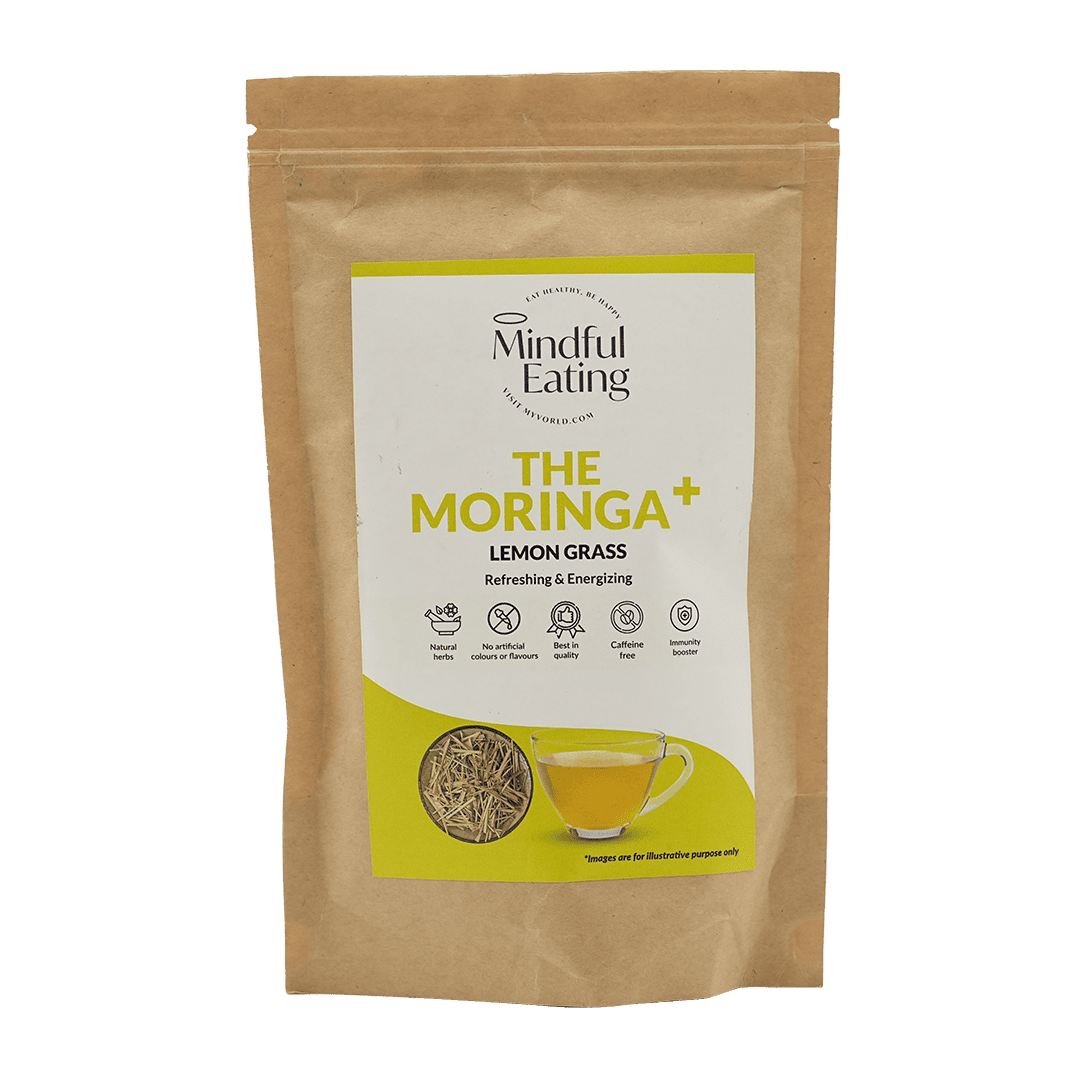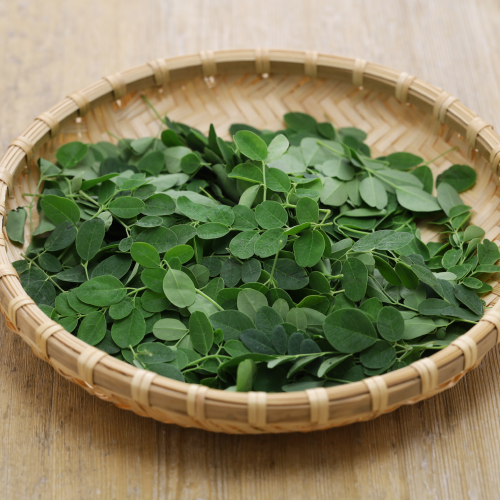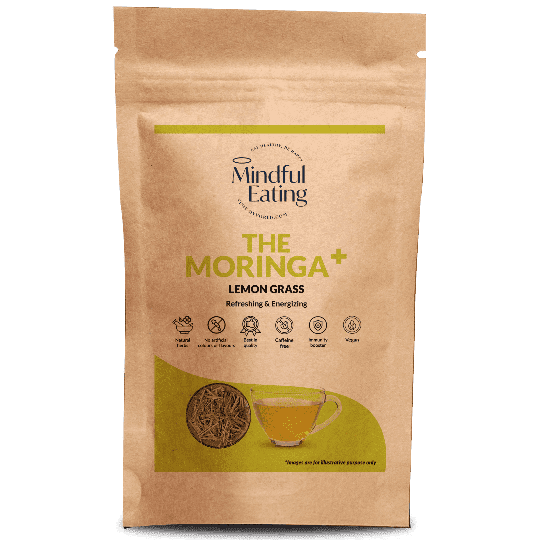
Lemongrass is a fragrant herb with slender green stalks and a distinct lemony flavor and aroma. It adds a zesty and refreshing element to dishes like curries, soups, and teas. With potential health benefits like antioxidant and anti-inflammatory properties, lemongrass is also used in herbal medicine and is believed to aid digestion. Easy to cultivate in warm climates, lemongrass holds cultural significance and is cherished for its culinary, aromatic, and potential therapeutic attributes.

Moringa leaves are rich sources of calcium and phosphorus, which are needed for good bone health. Moringa leaves come from the Moringa oleifera tree in India. Moringa oleifera is a tree with antioxidant and anti-inflammatory properties. Its health benefits may range from speeding up wound healing to managing blood glucose. It is also known as the drumstick tree, the miracle tree, the ben oil tree, or the horseradish tree, people have used moringa for centuries due to its health benefits. Moringa oleifera leaves have long been used in traditional medicine throughout South Asia and Southeast Asia.
Lemongrass, scientifically referred to as Cymbopogon citratus, is an aromatic herb prized for its delightful lemon-like fragrance and taste. Widely used in cooking, especially in Southeast Asian cuisines, it adds a zesty and refreshing element to dishes like curries, soups, and teas.. Traditionally used in herbal remedies and teas for digestion and relaxation, it has cultural significance in rituals and customs. From its hardy growth in warm climates to its use in aromatherapy, lemongrass continues to captivate with its multifaceted contributions to gastronomy, well-being, and culture.

Ashwagandha's adaptogenic qualities suggest it may help the body adapt to stress and potentially reduce anxiety symptoms.
Ashwagandha is generally considered safe for most people when taken in recommended doses.
Pregnant and breastfeeding individuals should consult a healthcare professional before using ashwagandha, as its safety in these situations has not been fully established.
Ashwagandha is generally not recommended for children without the guidance of a healthcare provider.
Some studies suggest that ashwagandha may have cognitive-enhancing effects, including potential improvements in memory and focus.
Ashwagandha's potential impact on hormone balance, particularly cortisol levels, has led to interest in its role in hormonal health.

Ashwagandha has been a game-changer for me. As a busy professional juggling multiple responsibilities, stress used to take a toll on my well-being. Since incorporating ashwagandha into my daily routine, I've noticed a remarkable improvement in my ability to manage stress. I feel more balanced, focused, and better equipped to tackle challenges.

As a fitness enthusiast, I'm always looking for ways to optimize my performance and recovery. Ashwagandha has become an integral part of my regimen. Not only do I feel more energized during workouts, but I also appreciate its potential anti-inflammatory effects, which help me recover faster and keep pushing my limits.

After struggling with occasional sleep issues, I turned to ashwagandha for support. The results have been truly remarkable. Not only am I falling asleep faster, but I'm also enjoying more restful nights. Waking up refreshed and ready to seize the day has become my new norm.

Dealing with the demands of a modern lifestyle was leaving me mentally drained. Discovering ashwagandha was a revelation. It's like a natural reset button for my mind. I find myself more focused, clear-headed, and better equipped to handle the daily hustle.

As a believer in holistic wellness, ashwagandha has earned a special place in my routine. Its adaptogenic properties have helped me cope with stressors, both physical and emotional. I feel more resilient, and I've noticed a positive shift in my overall mood and outlook on life.
Read more about our products
The Moringa+ Oatmeal Cookies
Rs. 300
| Net weight. 230 gms
The Moringa+ Relaxing Tea
Rs. 450
| Net weight. 70 gms
The Moringa+ Mint
Rs. 450
| Net weight. 70 gms
The Moringa+ Ashwagandha
Rs. 440
| Net weight. 90 gms
The Moringa+ Chamomile
Rs. 450
| Net weight. 70 gms
The Moringa+ Lemon Grass
Rs. 450
| Net weight. 70 gms
The Moringa+ Tulsi & Ginger
Rs. 440.00
Rs. 377
| Net weight. 90 gms
The Moringa+ Roasted Crips (Khakhra)
Rs. 250
| Net weight. 200 gms
The Moringa+ Soup
Rs. 300
| Net weight. 90 gms
The Moringa + Multi-Millet Noodles
Rs. 250
| Net weight. 200 gms
The Moringa+ Foxnut (Makhana) Chips
Rs. 350
| Net weight. 130 gms
The Moringa+ Gun Powder
Rs. 200
| Net weight. 90 gms
The Moringa+ Seed Oil
Rs. 350.00
| Net weight. 30 mls